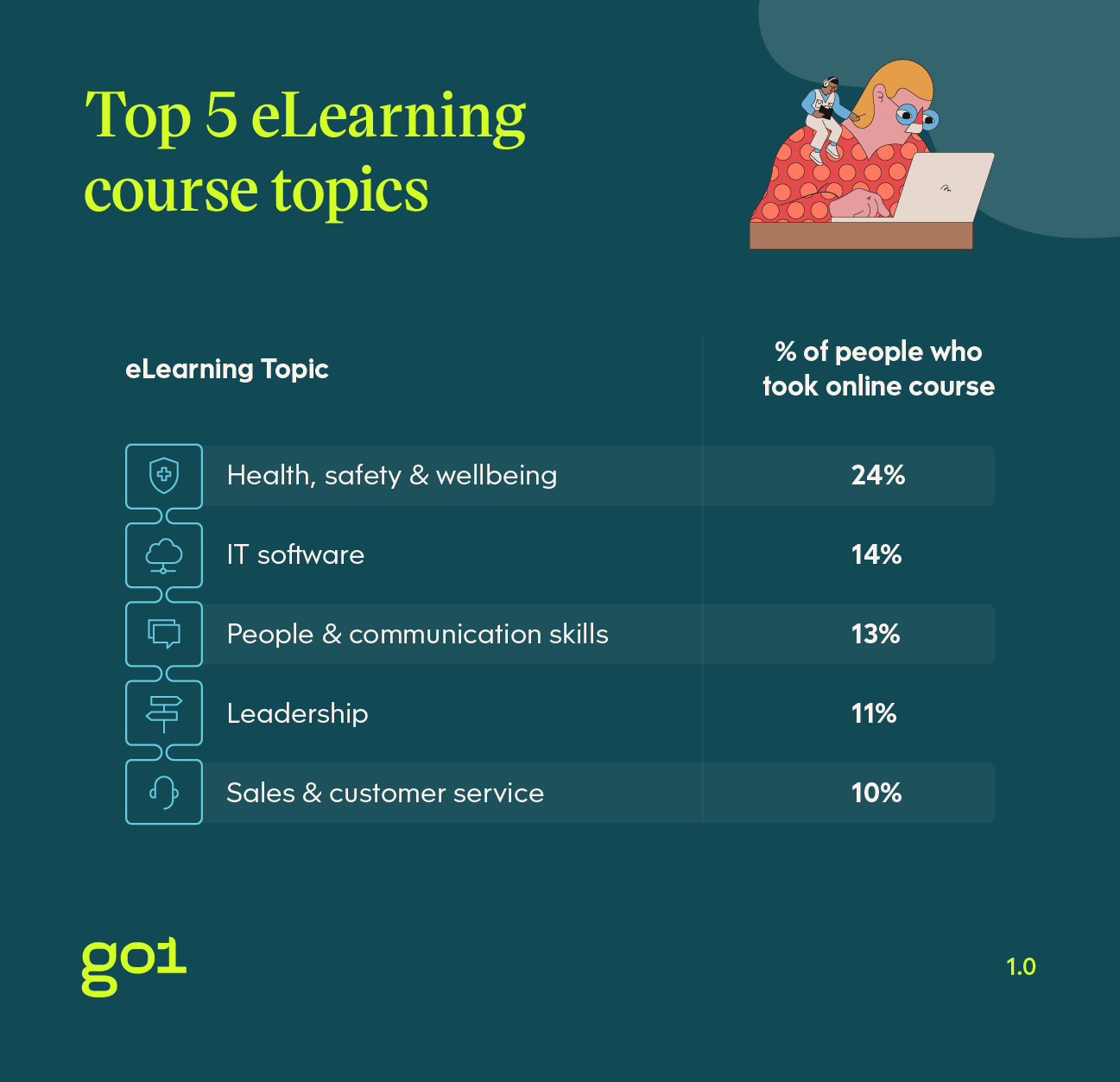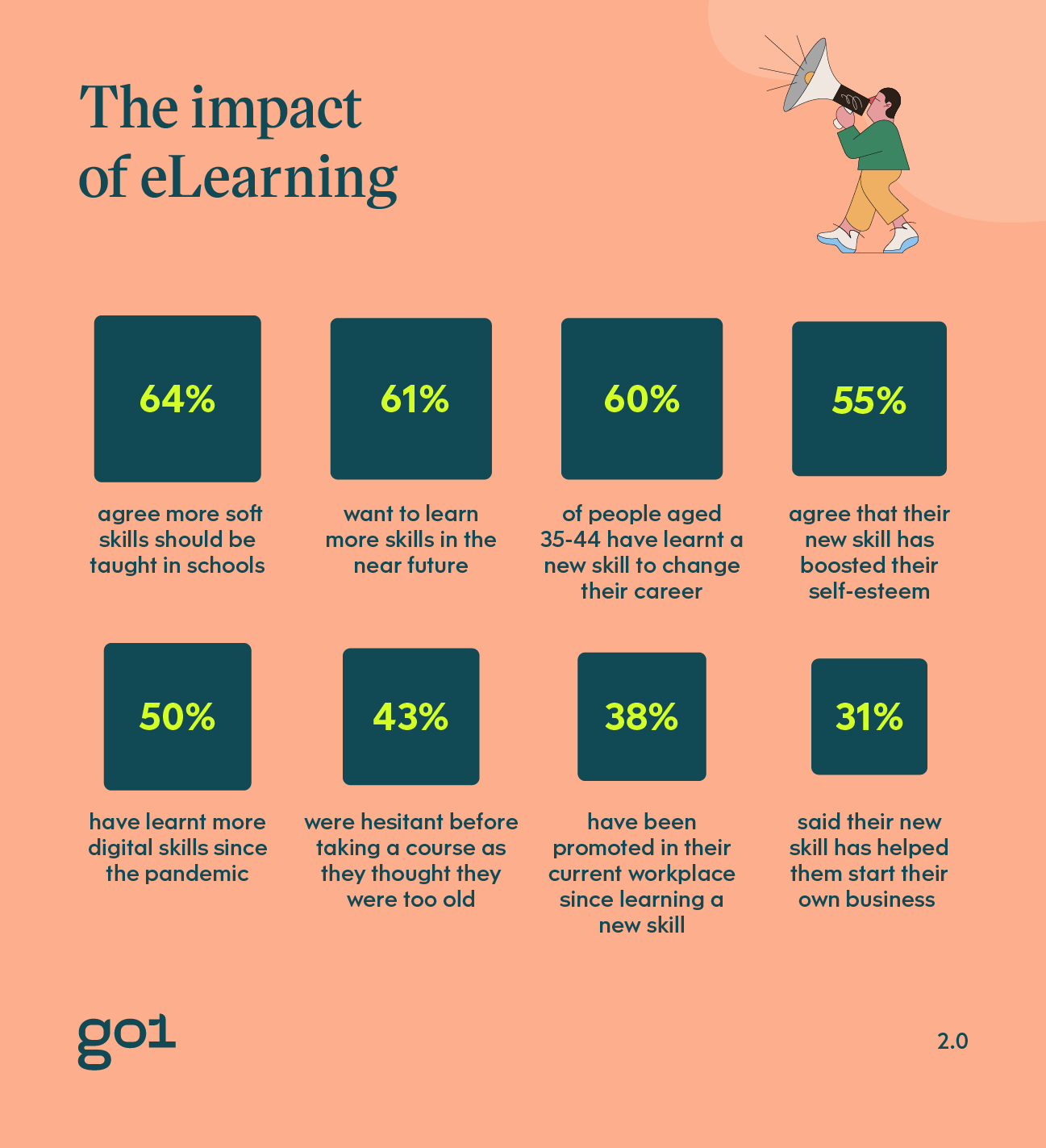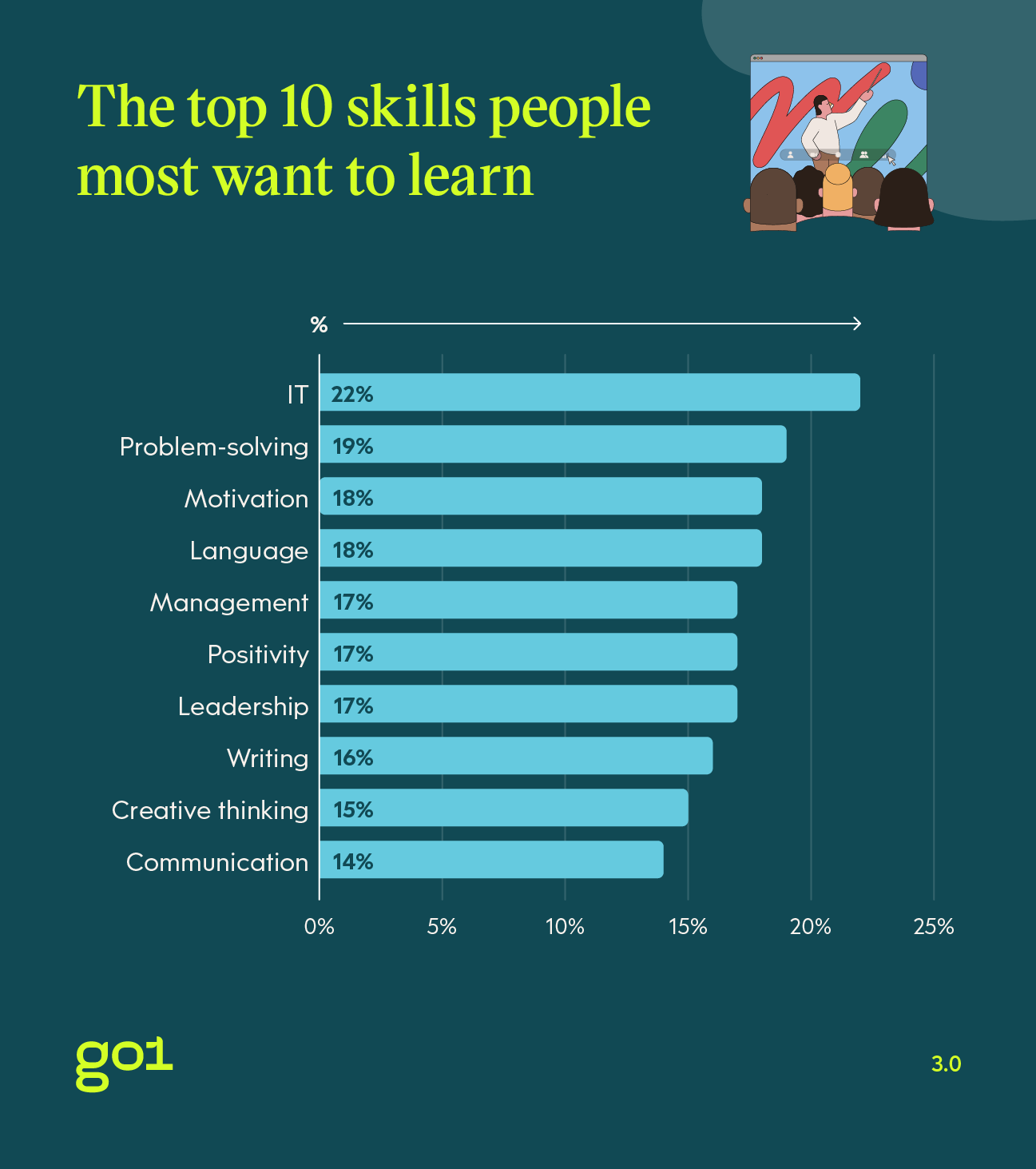
The impact of eLearning: an insight into learning new skills online

The positive impact of eLearning has revolutionised learning in the workplace, improving workflow, efficiency and communication. Since education programs can be rolled out digitally and for teams all over the world, how has learning new skills online impacted employee life and wellbeing?
According to a recent report, demand for online education has soared during the pandemic. With this in mind, we surveyed people in the UK who have undertaken an online course to reveal the impact learning new skills online can have on a person’s career and personal development.
Top eLearning course topics
Since the Coronavirus pandemic, health and safety has taken centre stage and businesses have raced to make workplaces COVID-secure to get employees back to work safely. But this has also heightened awareness of the overall importance of health and safety in the workplace.
This may explain why health, safety and wellbeing are the most popular areas of interest when it comes to eLearning courses, with 24% of respondents taking a course relating to this topic overall.
There was a slight disparity among men and women when it came to the most popular subjects of interest. Men opted for courses in IT software (18%), health, safety & wellbeing (18%) and leadership (14%), whereas women opted for courses in health, safety & wellbeing (30%), people & communication (15%) and IT software (10%).

The impact of eLearning
The internet has revolutionised learning, with schools, universities and businesses adopting eLearning to educate their students and employees. But how is eLearning impacting everyday life? Our survey revealed extensive personal benefits to learning new skills online, with more than 2 in 5 (43%) 16-24-year-olds saying their new skill has helped them start their own business. Not only that, nearly half of people aged 55+ (49%) said they want to learn more skills in the near future, proving it’s never too late to learn something new.

The top 10 skills people most want to learn
The World Economic Forum Future of Jobs report suggested that by 2025, complex problem-solving, critical thinking, creativity, people management and emotional intelligence would be among the most important skills required in the workplace. This may explain why 6 in 10 (64%) people think there should be more emphasis on schools to teach soft skills to students. But what are the most popular skills people want to learn?
IT skills are increasingly the most in-demand credentials in the workplace, which may explain why 22% of respondents chose this as a key area they want to learn more about. Other sought after skills include problem-solving, with 19% of respondents most interested in this, and motivational skills, with 18% of respondents choosing this as the skill they’d most like to learn.

Most popular mentors, past and present
If you could be taught by anyone famous, past or present, who would your ultimate teacher be? Albert Einstein revolutionised our understanding of space, time, gravity and the universe, which may explain why his name featured most when respondents were asked who their ultimate teacher would be. Other names that made the list included David Attenborough, Brian Cox and Winston Churchill.

According to the latest report, the global eLearning market is set to reach $457. 8 Billion by 2026. With the rapid improvements in digital technology, eLearning is definitely here to stay.
Keen to support your teams in building future skills? Download a guided eBook we've created in partnership with the Emerging Stronger team, thought leaders in the L&D space. This eBook looks at the modern day task of supporting individuals, teams and organisations with the future-fit skills that will allow them to thrive in the unfolding world of work.
Methodology
Survey data was conducted by Censuswide on behalf of Go1. 1000 UK respondents were surveyed between 08.12.21 - 13.12.21. Censuswide abides by and employs members of the Market Research Society which are based on the ESOMAR principles.
For more insights, subscribe to the Go1 newsletter to stay on top of all the latest L&D trends. Or, you can book a demo today to find out how Go1 can help with your team’s learning needs.




